Covid : Fiction and FAQs
We live in an era where misinformation spreads like wildfire and often we are left clueless as to what is fact and what is fiction.
Information is power and we must use this power to protect ourselves, our near and dear ones as well as to lessen the burden on the already frayed medical infrastructure in our country.
We know the essentials about the Covid-19 disease such as
- The way it spreads from person to person through small droplets produced when talking, coughing or sneezing.
- The common symptoms of the disease, which are fatigue, dry cough and fever.
- The best medicine is prevention by using masks and practicing physical distancing in all social situations.
Here is a list of FAQs, and facts separated from fiction:
Q1. Can you get Corona from handling food or food packaging ?
First off, Covid-19 is not a foodborne disease. There’s absolutely no evidence to suggest people will get infected by swallowing the virus through food or drink. Research has actually shown that the virus is inactivated in the acidic environment of the stomach, and is therefore unlikely to reach the gastrointestinal tract and cause illness.
According to the Centres for Disease Control and Prevention (CDC), there have been zero cases of COVID-19 related to food packaging or shopping bags. However, it is possible that the new variants of coronavirus can survive on these surfaces.
In fact, studies have shown how long coronavirus can survive on common food packaging materials, such as:
Cardboard: The virus can survive up to 24 hours on cardboard.
Cloth: The virus can survive up to 2 days on cloth.
Glass: The virus can survive up to 4 days on glass.
Plastic: The virus can survive between 3 and 7 days on plastic
Overall, the new coronavirus doesn’t survive well outside of the human body. Because of this, wiping down our groceries isn’t typically necessary. But as always, it is important to follow safety measures such as washing our hands before and after handling food, as well as washing our produce thoroughly in clean water and finally, cooking food at the optimum temperatures before consumption.
Q2. What precautions should you take if you absolutely must leave your house?
Mask up! Wear a mask and make sure you cover your nose, mouth and chin.
- N95 mask without a respirator valve is ideal.
- KN95 mask is readily available and is the next best thing to an N95 mask. But beware of fake and untested masks. Buy only from reliable sources.
- Next option is to “double mask” by combining a surgical mask with a thick cotton cloth mask. But make sure that when you hold the cotton mask against light, light doesn’t shine through. Anything less than that is not good enough. Surgical masks not soiled by saliva or mucous can be used for up to 24 hours.

Remember!
Keep your masks clean. Sanitise your hands before and after removing and putting on your mask. Masks should be handled only by their straps.
Your masks should not be too loose or too tight. It goes without saying, masks should be worn properly at all times.
Sanitise
Carry a hand sanitiser with you at all times. Avoid touching areas commonly used by people like handles, door knobs or rails. Sanitise your hands after contact with such surfaces. And at all costs, do not touch your face before cleaning your hands.
Make sure you use a sanitiser with minimum 60% alcohol content.
Social Distance
Maintain a physical distance of minimum 2 meters or approximately 6 feet from other people at all times. If somebody is encroaching in your safe space, politely remind them to maintain distance.
If you do meet someone you know outside, please don’t go in for a physical greeting such as shaking hands or pull your mask down while speaking.
Vaccinate
Register yourself for vaccinations and get vaccinated as soon as possible.
Q3. How do you know if you have Covid-19
The only sure-fire way to know is to get tested for the virus. Most common symptoms of Covid-19 are fatigue, dry cough and fever.
Gastrointestinal symptoms such as diarrhoea, nausea, vomiting has been reported in 40% of Covid-19 cases.
The second wave has been associated with red and bloodshot eyes, hearing loss, dry mouth, skin rashes and conjunctivitis. Reports suggest that there’s a high chance of lung involvement, up to 25% in most cases hit by the mutant coronavirus strain especially amongst the younger age groups now.
Q4. When and who should test for Coronavirus?
‣ If you have symptoms of covid-19
‣ If you are asymptomatic but have come in contact with anybody who has been diagnosed as covid positive, you must get tested.
‣ Asymptomatic high risk individuals (i.e. elderly ≥ 65 years of age, those with comorbidities etc.) in containment zones.
The ideal time to take the test is 4-5 days after exposure, though there is no set best time. The incubation period or the time from the virus entering your body and setting up shop , to the time you develop symptoms vary from 5 to 14 days.
Q5. What test should you do? RT-PCR or RAT?
As a general rule, RT-PCR or TruNat or CBNAAT is a superior test in terms of accuracy.
Although due to overload on the laboratories and other factors, your healthcare worker might suggest RAT test for those in containment zones.
Remember !
Just because your test for Coronavirus is negative , does not mean that you don’t have the illness. In Case you have the symptoms of Covid-19 and your symptoms are mild, immediately quarantine yourself and contact your doctor or the official helpline number.
Q6. What should you do if you have tested positive for coronavirus?

‣ First step, isolate yourself. But, if you have symptoms of breathlessness, chest tightness, blurred speech or other disconcerting symptoms, please seek immediate medical attention.
‣ Contact your healthcare professional i.e. call the Disha number and follow their advice or call your nearest hospital and follow their instructions. If you are advised to admit yourself to a hospital, please do so immediately.
‣ If you are advised home isolation and live in a society or apartment complex, do inform the nearby ward office or inform the PMC ward office. Each ward office has been provided with a war room for sanitisation of the premises.
‣ When isolating at home, it is important to follow the directions given by health professionals carefully so that you don’t put your loved ones at risk.
For more information, click here
 Food Manifest
Food Manifest 
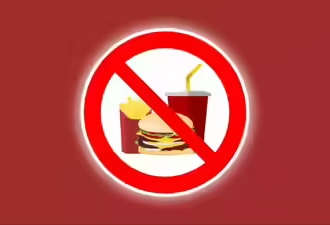

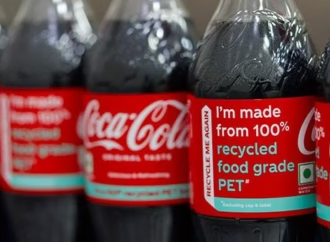
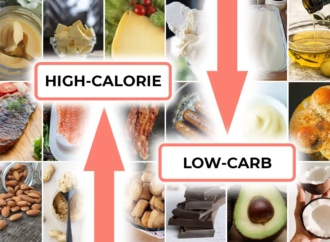






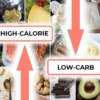






Leave a Comment
Your email address will not be published. Required fields are marked with *